How Xi Jinping built a party-centred administrative regime
Among President Xi Jinping's efforts to ensure the permanence of the Chinese Communist Party's regime, institutional restructuring has been an area of great focus. After two major rounds of integrated party-state institutional reform, a party-centred administrative regime appears to be emerging to add to the diversity of the regime types of the world.
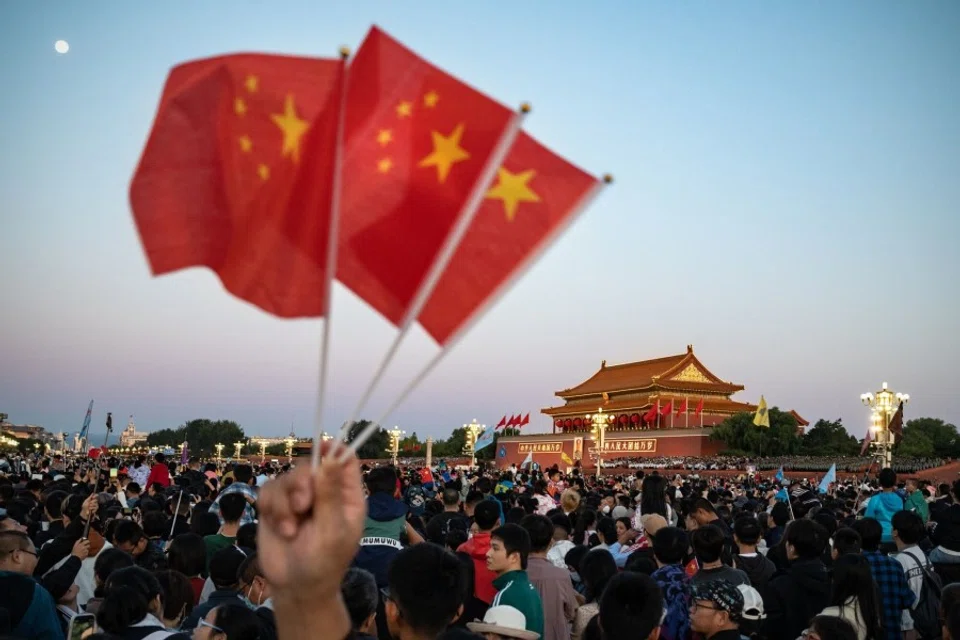
The primary obsession driving Xi Jinping's policy programmes and institutional restructuring is ensuring the permanence of the Chinese Communist Party (CCP)'s rule. Xi has pursued this goal with a triple-pronged strategy - fighting corruption, reviving ideological faith and overhauling the governance structure to firmly plant the CCP in the centre of public, corporate and social administration.
The high-profile corruption cases revealed recently, especially among the top brass of the military, indicate that his massive and sustained anti-corruption campaign has not been a great success. Meanwhile, reviving faith in an anti-capitalist ideology amid a bustling market economy is a contradiction in terms. What about institutional restructuring?
The 19th Party Congress in late 2017 ushered in the Xi era with the official endorsement of "Xi Jinping Thought on Socialism with Chinese Characteristics for a New Era". The 2018 restructuring was the first one fully controlled by Xi Jinping. It consolidated and deepened the incremental changes he had introduced during his first term in office (2012-2017). The primary objective was institutionalisation of the party's overall leadership, continuously improving the party's ability to set the direction, comprehensively planning ahead, as well as formulating policies and promoting reforms.
It resulted in the merger of party and government organs with similar responsibilities that ensured the migration of power from the latter to the former.
Consolidating party and top leader control
The restructuring carried out in the CCP Central Committee aimed to strengthen party power and authority, especially in the areas of personnel control, mass media, propaganda and ideological indoctrination, comprehensive national security, united front, the judiciary and law enforcement. It resulted in the merger of party and government organs with similar responsibilities that ensured the migration of power from the latter to the former.
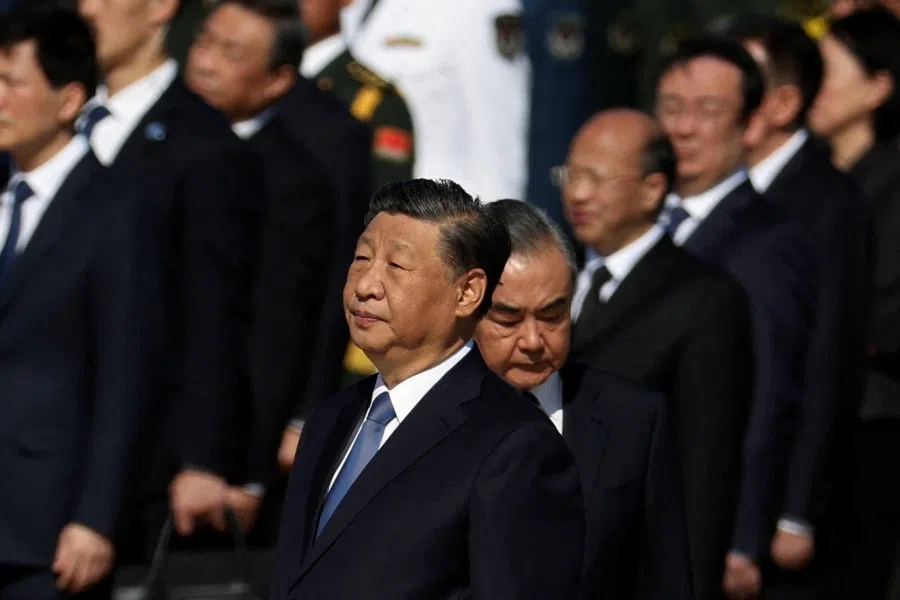
For that purpose, four new powerful party bodies were established.
First, the State Supervision Commission. This doubled as the Central Discipline Inspection Commission to extend the latter's jurisdiction to all state employees regardless of CCP membership.
Second, the Central Committee for Comprehensive Rule of Law. With its office embedded in the Ministry of Justice, the unit could realise full coverage of the supervision of all public officials exercising public power.
Several ad-hoc "leading groups", including the ones that Xi established upon taking power and played a key role in concentrating power in his own hand, were made permanent by upgrading them to committees...
Three, the Central Audit Commission, with its office located in the Audit Office of the State Council.
Fourth, the Central Leading Group for education work, with its office located in the Ministry of Education.
Several ad-hoc "leading groups", including the ones that Xi established upon taking power and played a key role in concentrating power in his own hand, were made permanent by upgrading them to committees: the Central Leading Group for Comprehensively Deepening Reform, the Central Leading Group for Cybersecurity and Informatisation, the Central Leading Group for Finance and Economics, and the Central Leading Group for Foreign Affairs.
These bodies are called "decision, deliberation and coordination bodies" and all have their standing alone executive offices running daily businesses.
Central Committee departments further empowered
Some existing departments of the Central Committee have been further empowered by taking on certain responsibilities hitherto carried out by government bureaucracies.
The Central Organisation Department, in addition to housing the executive office of the Central Institutional Establishment Committee (中央编制委员会, a party body in charge of the overall planning and preparation of the functions of Party and state organs), absorbed the Bureau of Civil Service.
The Central Publicity Department, on the other hand, took over the duties of supervising press and publication, copyright administration and film administration.
Meanwhile, the Central United Front Department absorbed the State Administration for Religious Affairs, gaining a leading role in overseeing the work of the State Ethnic Affairs Committee. It also took on overseas Chinese affairs, after absorbing the Overseas Chinese Affairs Office of the State Council.
In addition, the National Computer Network and Information Security Management Centre of the Ministry of Industry and Information Technology is now under the executive office of the Central Cybersecurity and Informatisation Commission. The Central Foreign Affairs Committee mentioned above is now also in charge of maritime rights and interests, after the abolishment of the Central Leading Group for Safeguarding Maritime Rights and Interests.
The Central Political and Legal Committee has taken over the duties of comprehensive public security, after the abolishment of the Central Committee for Comprehensive Management of Public Security and its office, as well as the duties of the Central Leading Group for Preventing and Handling Evil Cults. The Ministry of Public Security of the State Council houses its executive office.
Five new party bodies have been created...
New party bodies
In contrast, the reforms in the State Council emphasised streamlining, and the professional division of labour. Five new agencies were created: the Ministry of Veterans Affairs, the Ministry of Emergency Management, the International Development Cooperation Agency, the National Immigration Administration, and the National Medical Security Administration.
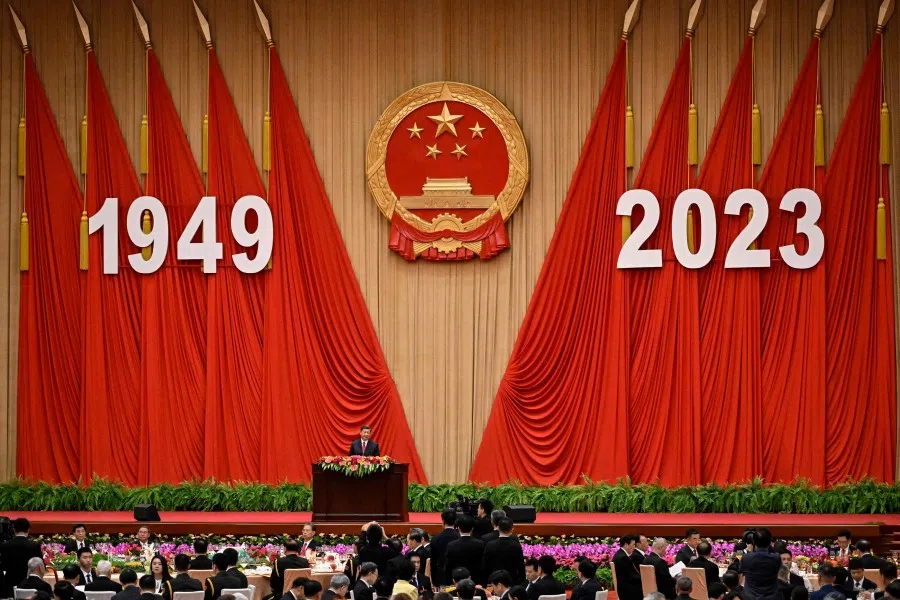
The 2023 round of institutional reforms further built on the restructuring of 2018, with a few refinements added from the experience of the past five years. In response to the drastically changed external environment, the CCP has adopted a new development paradigm (新发展格局) dubbed "dual-circulation strategy" (双循环战略), with emphasis on "high-quality growth" and "common prosperity".
Consequently, the 2023 round of institutional reforms accentuated national security, especially in increasing self-reliance in technological development and in mitigating the financial risks brought about by what seems to be a long-lasting downturn of the domestic economy, especially in the mounting local government debts and risks posed to the financial system by a drastic decline of the property markets.
Five new party bodies have been created: 1) the Central Science and Technology Commission, with its office housed in the reconstituted Ministry of Science and Technology; 2) the Central Social Work Department; 3) the Central Financial Commission; 4) the Central Financial Work Committee, charged with managing all party members in the financial system; and 5) the Central Office for Hong Kong and Macao Work, whose portfolio used to be under the State Council.
Permanence of the state is permanence of the party
Reforms in the State Council reorganised the Ministry of Science and Technology following the same principle as the last round that state organs are intended as professional implementers of party decisions and policies.
Reforms were carried out in five areas: 1) the creation of the State Administration for Financial Supervision; 2) upgrading the China Securities Regulatory Commission to an agency directly under the State Council; 3) reorganising the branch offices of the People's Bank of China; 4) converting the staff of People's Bank of China, State Administration for Financial Supervision, China Securities Regulatory Commission and State Bureau of Foreign Exchange to civil servants; and 5) creating the State Data Bureau under the National Development and Reform Commission.
By embedding itself in the centre of state operation, the CCP becomes indispensable, effectively excluding multi-party competition or electoral democracy.
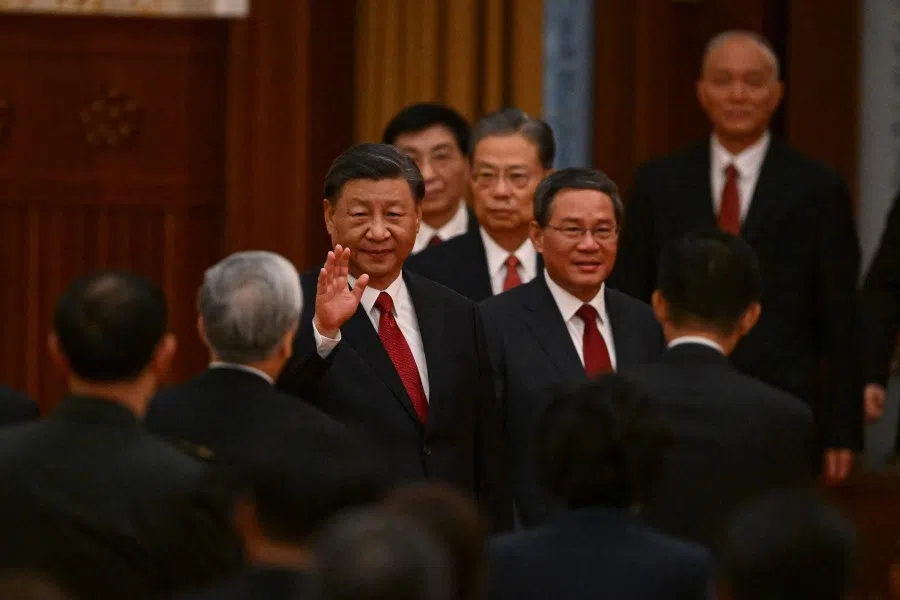
Following these two rounds of integrated party-state institutional reform, the CCP's organisational structure now resembles that of a state administration. The Party organs, especially the so-called "decision, deliberation and coordination bodies" that straddle across the divisions of party-state bureaucracies, have erased the line between the Party and the state. After the restructuring, the ruling party is very much part and parcel of the "modernisation of the governance system and governing capabilities".
Hence, the CCP is being professionalised and becoming competence-oriented. It is no longer a conventional political party. A party-centred administrative regime appears to be emerging to add to the diversity of the regime types of the world.
The CCP has thus evolved from a revolutionary party to a ruling party, and now to a competence-based administrative party. By embedding itself in the centre of state operation, the CCP becomes indispensable, effectively excluding multi-party competition or electoral democracy. The permanence of the state has become the permanence of the party. This is exactly the purpose of Xi Jinping.
An initial version of this article was first published as an East Asian Institute Background Brief.
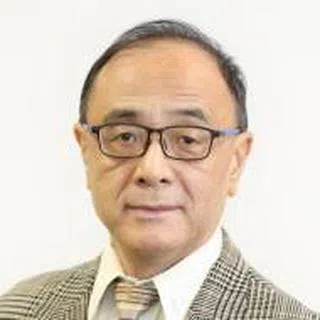

![[Big read] When the Arctic opens, what happens to Singapore?](https://cassette.sphdigital.com.sg/image/thinkchina/da65edebca34645c711c55e83e9877109b3c53847ebb1305573974651df1d13a)


